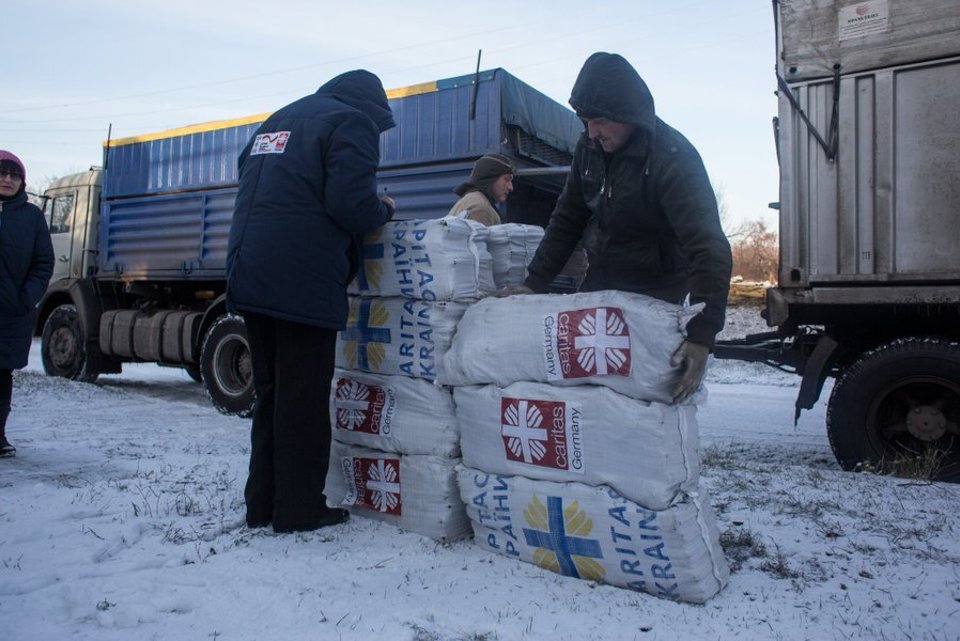World Humanitarian Day falls on the 19th of August each year and commemorates the death of 22 aid workers during the 2003 bombing of the Canal Hotel in Baghdad. Each year it sees people come together to celebrate the vital, lifesaving work done by humanitarians, while also remembering those who lost their lives while selflessly helping others.
In 2023, 280 aid workers were killed globally. So far this year, 170 aid workers have been killed. These are numbers that Caritas Australia openly condemns, as humanitarian workers and their activities are protected by International Humanitarian Law.
What’s more, the scale of humanitarian need is only growing, meaning that protecting these workers and their activity is lifesaving on multiple fronts.

Caritas Jerusalem in the West Bank. Photo: Caritas Poland.
What does it mean to be a humanitarian worker?
Humanitarians respond to extreme needs, such as urgent requirements for water, food, shelter, protection, and lifesaving medicine. Humanitarian aid is usually deployed in areas affected by conflict or disaster, with Gaza, Ukraine, and the recent Papua New Guinea Landslide all current examples of humanitarian responses.
This differs from development work, which is longer term programming designed to support people and communities as they lift themselves out of poverty. Sometimes this development work centres on preparing communities for emergencies, so situations do not become so dire as to require a humanitarian response.
Why and how are humanitarian lives lost?
Not every humanitarian is a field worker, but working in the field is where lives are most often lost. Most of the time these deaths are preventable, as they are the result of human violence, whether intentionally or unintentionally directed at aid workers.
International law has existed to protect civilians and aid workers for over 75 years. Not only are humanitarians protected, but their work is too as international law decrees that they should have safe and unimpeded access to those in need.
Unfortunately, violations of this law are increasingly common, with the UN reporting 283 aid worker deaths in Gaza since October 2023.
Most aid workers lost are national staff rather than internationally deployed aid workers. They were simply working to save people in their own communities, towns, and cities. Around half work for NGOs like Caritas Australia and its partners.

Caritas agencies distributing emergency supplies in Ukraine in early 2022. Photo Caritas Germany.
How important are humanitarians?
Unfortunately, humanitarians are more important than ever before with 300 million people expected to need humanitarian assistance this year. The convergence of increased conflict, the global climate emergency, and economic pressures are cited as being behind this sharp increase in demand on humanitarian assistance.
People are twice as likely to be forcibly displaced now than they were ten years ago, with outbreaks of cholera increasing as people enter crowded refugee camps and lose access to clean water and sanitation. One in five children are now living in or fleeing from conflict, and 258 million people face food insecurity.
Caritas Australia supports vulnerable communities who have been impacted by disasters and emergencies around the world, providing emergency shelter, food, clean water, medical care, and psychosocial support to communities facing dire circumstances.
If you would like to support this vital work, then please do donate to the Caritas Australia Emergency Relief Appeal.

















